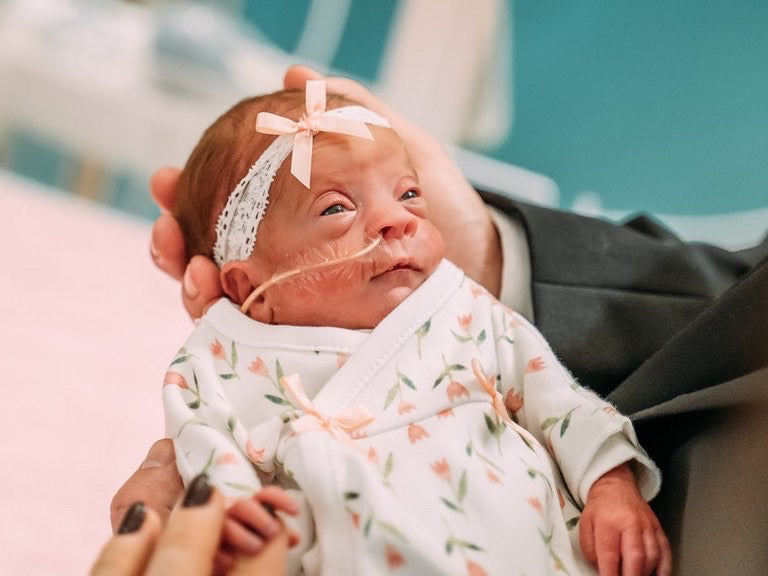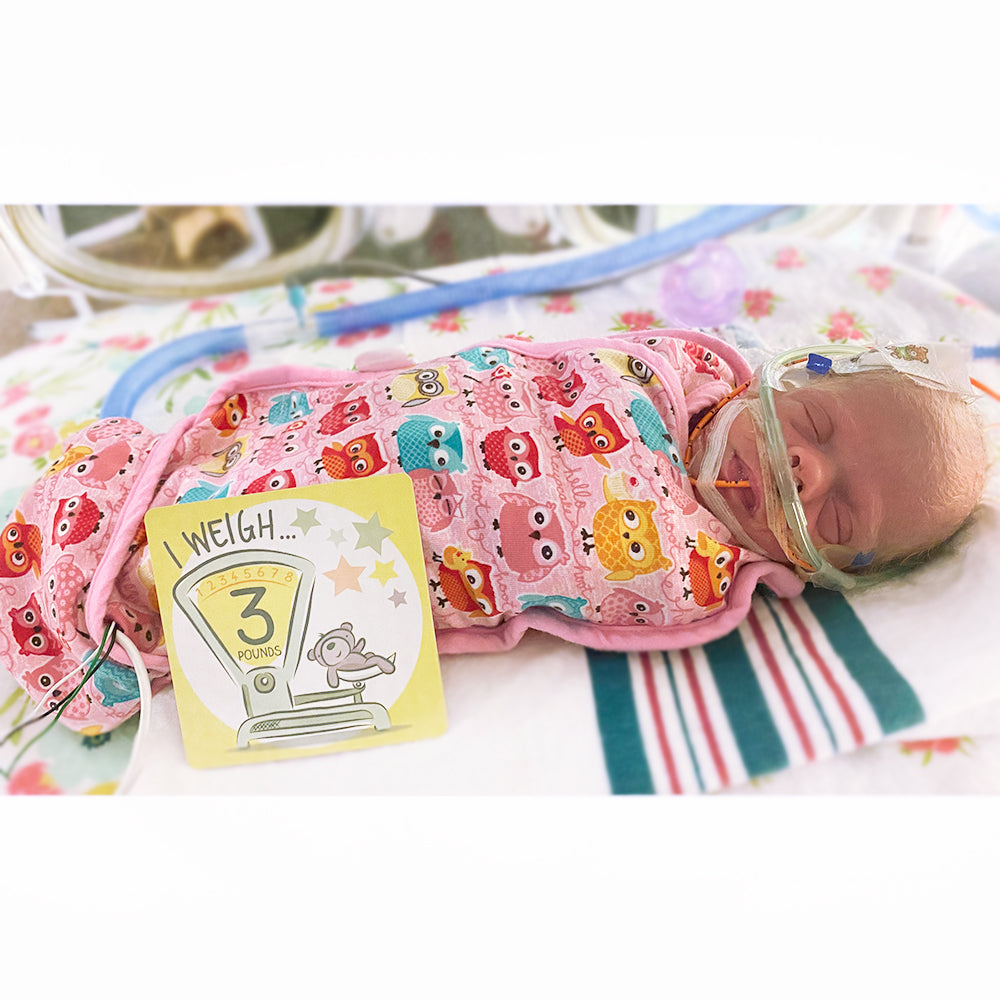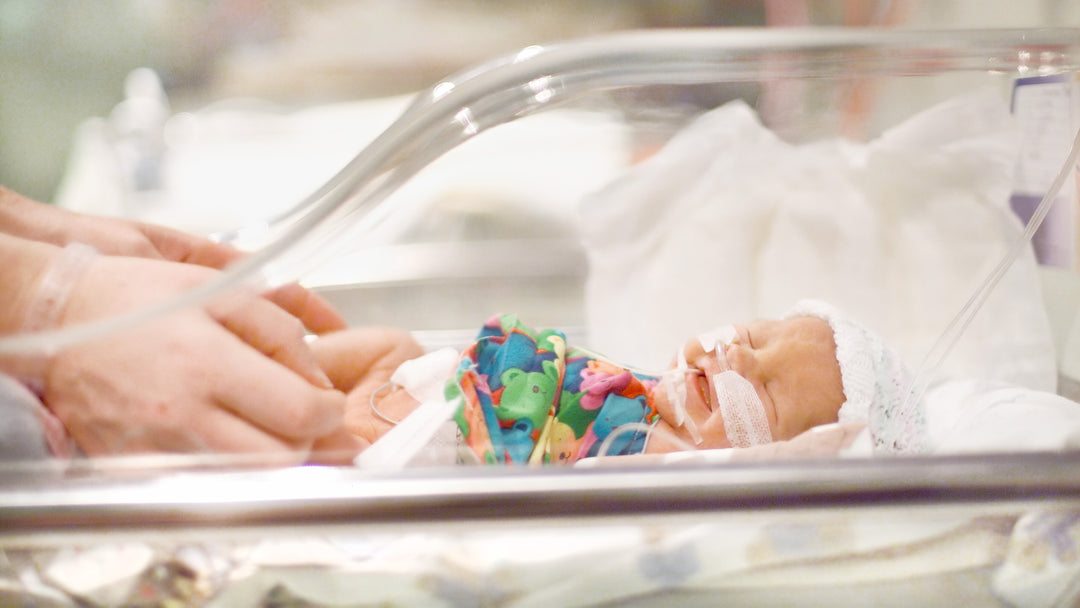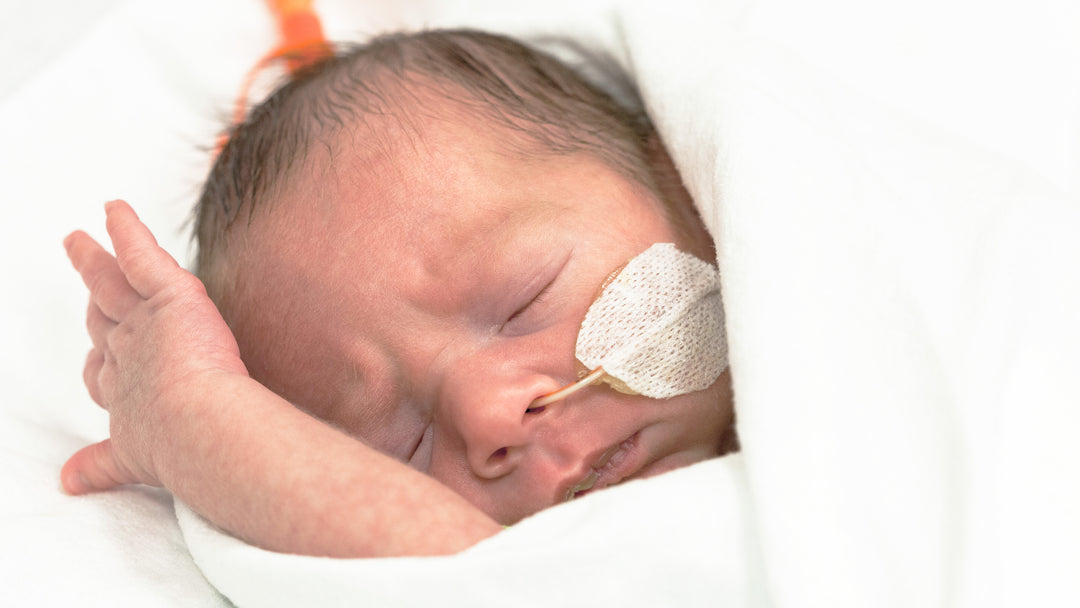Can I Hold or Touch My Preemie in the Hospital?
Bringing a preemie into the world is a journey that comes with its unique set of questions, and one that often lingers on the hearts of parents is, "Will I be able to hold or touch my baby?" In this blog post, we'll dive into the considerations, emotions, and heartwarming moments associated with physical connection, including the transformative practice of kangaroo care.
Understanding the Situation: Hospital protocols for holding or touching preemies can vary based on their health condition and gestational age. In the initial days, when fragility is a significant concern, the medical team may prioritize monitoring and stabilization, potentially limiting immediate physical interaction.
The Power of Touch in Neonatal Care: Research highlights the incredible benefits of touch in neonatal care. Skin-to-skin contact, commonly known as kangaroo care, is a beautiful bonding experience with tangible health advantages. It regulates the baby's heart rate, improves oxygen saturation, and fosters a profound sense of security.
Navigating Tubes and Wires: Many preemies are connected to monitors, tubes, and medical equipment, which can initially pose challenges for physical contact. However, healthcare professionals are skilled at creating a safe and comfortable environment. Techniques like "contained care" allow for gentle cradling while ensuring necessary connections.
The Gradual Progression: As your preemie's health stabilizes, the medical team will likely encourage and facilitate more hands-on involvement. Starting with simple touches and gradually progressing to holding, the journey is a series of small but significant steps toward establishing that vital parent-child connection.
Kangaroo Care: A Transformative Practice: Kangaroo care involves placing your preemie on your bare chest, promoting skin-to-skin contact. This practice is a cornerstone in neonatal care, offering not only physical benefits but also emotional support for both the baby and parents. It's a moment of pure intimacy, fostering a deep bond that transcends medical complexities.
Building Confidence Through Communication: Feeling anxious or uncertain about touching your preemie is entirely normal, especially if they are in an incubator or connected to machines. Open communication with the healthcare team is crucial. They can guide you on the best times, positions, and techniques for physical contact based on your baby's unique needs.
Overcoming Emotional Hurdles: The emotional aspect of not being able to hold your baby immediately can be challenging. It's okay to express these feelings and seek support from the medical team, as well as from fellow parents who have navigated similar journeys.
Celebrating Milestones: Each moment of physical contact, no matter how small, is a milestone in your preemie's journey. Celebrate these moments – whether it's the first time you hold them, the first touch without medical barriers, or the soothing embrace during kangaroo care.
The road to holding or touching your preemie in the hospital may have its twists and turns, but it is a journey filled with hope, progress, and the undeniable power of parental love. As you navigate these moments, remember that each touch, no matter how brief, contributes to the incredible bond you share with your little one. Kangaroo care, in particular, emerges as a transformative practice, providing both physical and emotional nourishment, solidifying the strength, resilience, and unwavering love that defines the extraordinary journey of parenthood.








